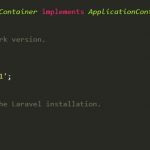So you’re dipping your toes into game development, huh? One big question you’re probably wrestling with is: which game engine should you use? It’s a huge choice, and it’ll shape your whole game development journey. You’ve likely heard folks raving about Unity, but what is it really, and why’s it such a big deal? Let’s break it down.
Table of Contents
What’s Unity?
Unity’s been in the game (pun intended) since 2005. Created by Unity Technologies, this engine made game development tools accessible to more people when it first launched. This was a game-changer back in the day.

Fast-forward to now, and Unity has evolved into this versatile powerhouse, always staying on the cutting edge of tech and practices.
What sets Unity apart is its welcoming arms for all—whether you’re just starting or have years of experience under your belt. The engine is stocked with a buffet of tools that makes it super versatile for game creation.
And hey, it’s not just for games anymore! Unity has branched out into other sectors like automotive design, architectural visualization, and more, all thanks to its robust real-time 3D development capabilities.
Unity doesn’t just stop at being a fantastic engine; it also offers legitimate certifications. Yep, you can become a Unity-certified developer.
This isn’t just a piece of paper but an industry-recognized credential that sets you apart in the crowded game dev world.
Unity’s Key Features
- Art Flexibility: 3D & 2D: Unity is like an all-you-can-eat buffet for graphics. Whether you’re into 3D models or 2D sprites, this engine’s got tools designed specifically for each style. From sprite sheet editing for 2D games to a fully-fledged Shader Graph for 3D games, Unity offers a smorgasbord of visual options.
- Building Blocks: Scenes & Objects: Unity thinks of a game as a collection of ‘Scenes,’ sort of like levels in a game. Within each scene, you’ve got ‘Game Objects’—anything from your main character to background elements. You can easily set up parent-child relationships between objects. This is super handy when you want one object to carry a bunch of others, like a character and their weapons.
- Inspector Gadget: Unity’s Inspector tool lets you tweak object properties on the fly. Change colors, tweak physics, or adjust lighting without having to deep-dive into code. It’s your go-to spot for quick changes.
- The Power of Script: Unity’s robust Scripting API makes coding a breeze. Whether it’s tweaking the user interface or messing with game physics, the API’s got your back. Unity’s documentation is also pretty top-notch, so you’re not navigating the coding world blind.
- Go Anywhere: Cross-Platform Magic: Ever dreamed of making a game that someone can play on practically any device? Unity is your golden ticket. It supports an extensive range of platforms, from Android and iOS to gaming consoles. Plus, it’s optimized to keep tweaks to a minimum when you switch from one platform to another.
- Into the Future: VR & AR: Unity’s got its fingers on the pulse of VR and AR technologies. It offers a range of packages that make it pretty straightforward to develop for any VR headset. AR’s not left out; Unity’s AR Foundation lets you build apps for Android and iOS simultaneously.
- The Ultimate Store: Asset Heaven: Need a specific sound effect or a ready-to-go game template? Head to Unity’s Asset Store. It’s packed with assets you can snag for your project, both free and paid. Plus, it’s simple to integrate these assets into your game, thanks to Unity’s package manager.
- Unity’s Own Goodies: Beyond third-party assets, Unity itself gives you a bunch of free resources. From visual scripting tools to 2D game frameworks, they’ve got a library of cool stuff to kickstart your game development journey.
- Render Me This: Unity gives you choices in how your game is rendered. You can pick the rendering pipeline that fits your project’s needs, or even build your own if you’re feeling adventurous.
- Animate It: Unity boasts its own in-house animation tools. Create complex animation sequences, set up bone rigging for 2D characters, or import animations from external software. It’s animation made easy.
- More Than Games: Unity isn’t just for game devs. Its feature set extends its utility to industries like film-making and architecture, offering real-time 3D solutions for a wide range of projects.
- Analyze This: Unity’s analytics tools help you understand how players interact with your game, pinpoint performance issues, and even debug problems. It’s the perfect toolkit to refine and perfect your game.
Unit Pricing
Unity operates on a dual financial model that combines subscriptions with revenue sharing. On the one hand, you’ll need to pick a subscription plan, which can range from free to premium options.
On the flip side, Unity also has a revenue-sharing component. This means that if you develop a game or app that starts generating money, Unity will take a portion of those earnings.
Subscription
For Students: “Unity Student”

If you’re a student who’s at least 16 and going to a recognized school, this one’s for you! You’ll get access to the same Unity tools the pros use, and you’ll also get some free resources to kickstart your journey.
All you need to do is agree on how your personal data will be handled.
Just Getting Started? “Unity Personal”
If you’re new to Unity and you haven’t made more than $100,000 $200,000 (updated on September 23, 2023) in the past year, the Personal plan is your best bet.
And you aren’t required to show the “Made with Unity” splash screen.
It’s absolutely free, and it comes with the latest Unity Platform and some useful resources to help you get going.
Taking It Seriously: “Unity Pro”

Ready to go big? With Unity Pro, you’re looking at a yearly cost of $2,040 for each team member.
This plan lets you publish games to consoles, and customize your splash screens, and it offers a bunch of advanced features like AR/MR tools and even physics enhancements. Plus, you get priority support and advice from experts.
For Bigger Teams: “Unity Enterprise”

If your project is complex and you’re part of a large team, the Enterprise plan offers everything you’ll find in Unity Pro, plus some.
Expect faster tech support, access to Unity’s source code, and even a three-year Long-Term Support (LTS) plan. You’ll also get a flexible licensing system to better fit your team’s needs.
The Full Experience: “Unity Industry”
Running a sizable operation in any industry? This plan will set you back $4,950 a year per seat but offers the ultimate package.
You’ll get everything included in the Enterprise plan, as well as specialized plugins and over 300+ hours of training.
You’ll also have a dedicated Unity Advisor and a specialized onboarding process for new customers that lasts three months.
Revenue Share / Runtime Fee
The Unity Personal plan is still going to be free, and games made with it won’t have a runtime fee.
Games making less than $1 million in revenue over the past year won’t face any extra fees.
If you’re using Unity Pro or Enterprise, some changes are on the way based on user feedback. The new “Runtime Fee” policy will kick in with the next Long-Term Support (LTS) version of Unity, set to ship in 2024. Any existing games or projects you’re currently working on are exempt, unless you decide to upgrade to the new Unity version.
You can stick with your current Unity editor’s terms as long as you continue using that version.
For games that do incur a runtime fee, you’ve got options: You can either go with a 2.5% revenue share or a fee calculated on the number of new users your game attracts each month. Both options rely on self-reported data, and you’ll be charged the lesser of the two amounts.




